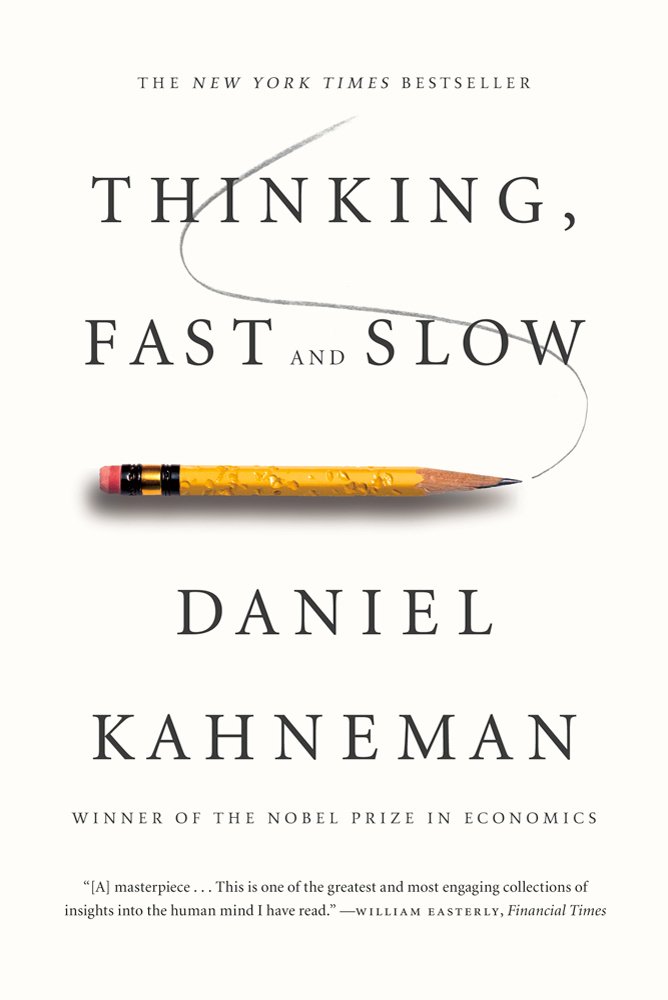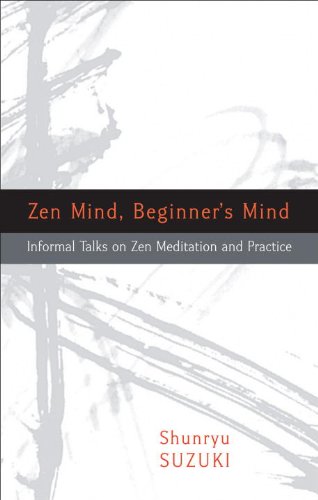This week I started reading Daniel Kahneman’s Thinking, Fast and Slow about how we think and biases that can arise from our intuitive thoughts and judgment. One thing that really stood out to me was a relationship between self-control, intelligence, and academic performance. Intuitively, it would seem that intelligence would have a greater effect on academic performance than self-control. While self-control is required to complete work, generally the greater one’s intelligence, the better they will do in school and other academic or intellectual tasks.
I was reminded of some similar findings which were presented in The Power of Habit by Charles Duhigg, where quoting from some research it was explained that:
“Highly self-disciplined adolescents outperformed their more impulsive peers on every academic-performance variable,” the researchers wrote. “Self-discipline also predicted which students would improve their grades over the course of the school year, whereas IQ did not…Self-discipline has a bigger effect on academic performance than does intellectual talent.”
No matter how intelligent someone is, if they don’t have the discipline and self-control to sit down and do the work required of a course, they are not going to do well. While someone with slightly less intelligence, but greater discipline and self-control can complete the work and earn better grades.
Unfortunately, willpower, which we use to exercise our self-control and maintain our focus on a particular task, is a finite resource; having to exert your willpower throughout the day to get work done and maintain your focus on a task will deplete your reserves. This can lead to negative effects later, as Kahneman explains:
It is now a well-established proposition that both self-control and cognitive effort are forms of mental work. Several psychological studies have shown that people who are simultaneously challenged by a demanding cognitive task and by a temptation are more likely to yield to the temptation.
When we are distracted, or at the end of a long day, it can become difficult to find the motivation to do any more work, or resist the temptation of sitting on the couch and relaxing. Having spent the entire day doing the work that you have to do, it can be very difficult to get home, then do the work that you want to do, to improve yourself , or just to get things done, having done so much work already. This problem was also expressed through an analogy in The Power of Habit where Duhigg said:
There’s been more than two hundred studies on this idea since then, and they’ve all found the same thing. Willpower isn’t just a skill. It’s a muscle, like the muscles in your arms or legs, and it gets tired as it works harder, so there’s less power left over for other things.
Like any muscle, our willpower can become tired from continuous use throughout the day, when we have to do the things that others want us to or require us to do, rather than the things we’d like to be working on. The bright side of this comparison of willpower to a muscle, is that like a muscle, our willpower can be strengthened through practice and training. As Kanheman states in Thinking, Fast and Slow:
The testers found that training attention not only improved executive control; scores on nonverbal tests of intelligence also improved and the improvement was maintained for several months. Other research by the same group identified specific genes that are involved in the control of attention, showed that parenting techniques also affected this ability, and demonstrated a close connection between the children’s ability to control their attention and their ability to control their emotions.
By building our attention we can improve our self-control and discipline. This can also have lasting effects on our intelligence. Although the study focuses on academic performance, it seems reasonable to conclude that any intellectual work could benefit from an increased attention span and greater self-control and discipline while working.
While there are many ways to train one’s attention, an easy one that can be done almost anywhere is through the practice of meditation, which can have benefits beyond an improved attention span and ability to concentrate. As Shunryu Suzuki explains in Zen Mind, Beginner’s Mind:
If you want to obtain perfect calmness in your zazen, you should not be bothered by the various images you find in your mind. Let them come, and let them go. Then they will be under control. But this policy is not so easy. It sounds easy, but it requires some special effort. How to make this kind of effort is the secret of practice. Suppose you are sitting under some extraordinary circumstances. If you try to calm your mind you will be unable to sit, and if you try not to be disturbed, your effort will not be the right effort. The only effort that will help you is to count your breathing, or to concentrate on your inhaling and exhaling. We say concentration, but to concentrate your mind on something is not the true purpose of Zen. The true purpose is to see things as they are, to observe things as they are, and to let everything go as it goes.
By practicing meditation, especially when your willpower is depleted, or you are distracted and do not really feel like sitting, over time one can build up both one’s self-control and willpower, simply by sitting when we don’t want to, as well as our attention span, by maintaining our focus and concentration on our breathing.
By strengthening our willpower we can not only focus better and concentrate more on our work, but summon the motivation to get work done even when we do not feel like doing it as well as resist temptations when they arise in our lives. Stronger willpower can help us to get more done at work or school, then leave us with enough reserves to do our own work when we get home and resist the temptation to relax and put off our work of improving ourselves until we have had an easier day.



